When it comes to grilling, the choice of fuel plays a crucial role in determining the flavor, convenience, and overall grilling experience. One of the key factors in choosing the grill fuel types is your personal preference, like what flavor you are looking for.
If you are a seasoned griller or a pro, your grill fuel choice will also help you choose what type of grill you are looking for.
Since there is more than one grill fuel type, what options you have here are elaborated by 4seasongrills.com.
Let’s get started.
The Popular Grill Fuel Types
The common and popular options for grilling options are four which are further categorized. The grill fuel types are
- Charcoal
- Gas
- Wood
- Electricity
1. Charcoal: The Classic Choice
Charcoal has long been considered the oldest and most conventional fuel for grilling. This is liked the most because of its unmistakable smoky flavor, which is present in every bite you take.
The charcoal is further categorized into two primary types; lump charcoal and charcoal briquettes.
Lump Charcoal: Lump charcoal is made from natural wood that has been carbonized. It is prized for its purity, burning hotter and cleaner than other fuel types. Lump charcoal ignites quickly and produces less ash, making cleanup easier. However, its irregular shape can lead to inconsistent heat, requiring careful attention during cooking.
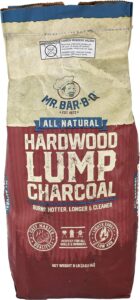
You can buy them here: Charcoal Lumps
Charcoal Briquettes: Charcoal briquettes are manufactured using sawdust, wood scraps, and additives. They are designed to burn steadily and for longer durations compared to lump charcoal. While they are convenient and budget-friendly, some purists argue that the additives can impart an undesirable flavor to food.
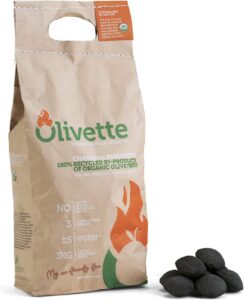
You can buy them here: Charcoal Briquettes
2. Gas: The Convenient Modern and Portable Option
Gas grills are either fueled by propane or natural gas. This grilling fuel type has undoubtedly revolutionized the grilling experience by bringing in the innovation of portability.
They are ideal for those who value convenience and speed over traditional smoky flavors. The two options for this grilling fuel is
Propane Gas: Propane is the most common gas used for grilling, stored in portable tanks that connect to the grill. Propane grills heat up quickly, offer precise temperature control, and are easy to operate. They are perfect for urban settings or smaller outdoor spaces. You can also read our guide for propane gas grill.
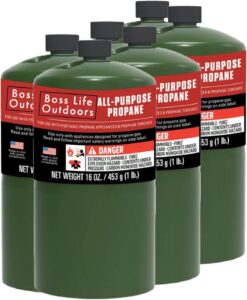
You can buy them here: Propane Gas.
Natural Gas: Natural gas grills are connected to your home’s gas line, providing an endless fuel supply. While they are less portable than propane grills, they are a cost-effective and environmentally friendly option. The installation may require professional assistance, but the long-term savings and convenience make them worthwhile.
3. Wood: A Nod to Tradition
Wood grilling harks back to ancient cooking methods, where the choice of wood can greatly influence the flavor of the food. However, with time and innovation, the wood types are now marketed in different flavors to enrich your meal even more.
The different wood types impart unique characteristics, making it a favorite among barbecue enthusiasts. The popular options for wood are
Hardwoods: Hardwoods like oak, hickory, mesquite, apple, and cherry are commonly used for grilling. Oak provides a balanced, smoky flavor suitable for most meats, while hickory adds a stronger, bacon-like taste. Fruitwoods such as apple and cherry offer milder, sweet aromas, perfect for poultry and fish. Mesquite burns hot and fast, imparting a bold flavor that pairs well with beef.
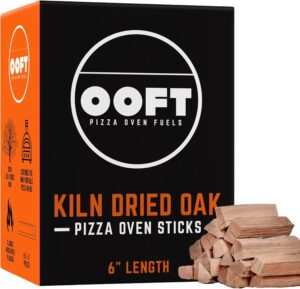
You can buy them here: Hardwood For Grilling.
Wood Pellets: Wood pellet grills have gained popularity for their versatility and ease of use. Wood pellets are small, compressed cylinders made from sawdust. They are burned in a controlled environment, allowing for precise temperature management. The wood pellet grills are available in different flavored wood and can smoke, bake, roast, and grill, making them a versatile addition to any backyard.
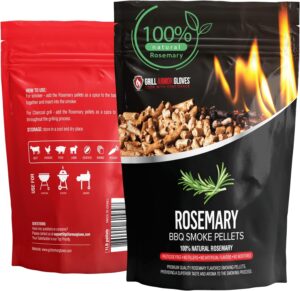
You can buy them here: Wood Pellets
4. Electric: The Indoor Alternative
Electric grills are a practical choice for those with limited outdoor space or strict regulations against open flames. They are powered by electricity and rely on heating elements to cook food. While they lack the smoky flavor of charcoal or wood, electric grills are compact, easy to clean, and convenient for apartment living.
Other Grilling Fuel Options Are
Apart from these popular grilling fuel types, with time and innovation. Many brands have upgraded and adopted new technologies by combining these fuels to offer better user experience to people.
Hence, presently, these new grilling fuel types are available other than these, which includes,
Infrared: High-Tech Grilling
Infrared grills use radiant heat generated by infrared burners to cook food. This technology allows for rapid and even heating, reducing cooking times while preserving moisture.
Infrared grills are often gas-powered but differ in how they distribute heat. They are ideal for achieving restaurant-quality sears on steaks and other proteins.
Hybrid Grills: The Best of Both Worlds
For those who cannot decide on a single fuel type, hybrid grills offer the flexibility of using multiple fuels. These grills often combine charcoal and gas, providing the option to switch between traditional and modern grilling methods. Some models even incorporate wood pellets or infrared technology, catering to diverse cooking styles.
Environmental Impact and Sustainability of using the grilling fuel types
As grilling gains popularity, so does the importance of understanding the environmental impact of different fuel types.
Charcoal production, especially lump charcoal, can contribute to deforestation if not sourced sustainably. Look for products certified by organizations like the Forest Stewardship Council (FSC).
Gas grills produce fewer emissions compared to charcoal, making them a more environmentally friendly option.
Natural gas is particularly efficient, while propane is a cleaner-burning fossil fuel. Electric grills, when powered by renewable energy sources, can be an eco-conscious choice.
Wood grilling’s sustainability depends on the type and source of the wood. Hence, opt for sustainably harvested hardwoods or pellets made from recycled materials to minimize environmental harm.
Flavor Profiles and Cooking Techniques
Each fuel type lends itself to unique flavor profiles and cooking techniques, which is why there are a few options where you can make a blend of fuels for an enriched and mouth-watering taste.
Charcoal and wood are unmatched in their ability to impart smoky aromas, while gas and electric excel in precision and convenience.
Experimenting with different fuels can elevate your grilling skills and broaden your culinary repertoire.
Charcoal and Wood
These fuels excel at smoking and slow-cooking, making them ideal for barbecue classics like ribs, brisket, and pulled pork. They’re also great for achieving a perfect sear on steaks and burgers.
Gas and Infrared
Gas grills are versatile, handling everything from quick weeknight meals to elaborate grilling sessions. Infrared grills are excellent for high-heat searing, locking in juices and flavors.
Electric
Electric grills are best suited for quick and easy grilling, offering a convenient way to prepare vegetables, seafood, and lean proteins.
Which fuel type is better? Cost Considerations
When choosing a grill fuel type, consider the initial and ongoing costs. Charcoal grills are generally more affordable upfront, but the cost of charcoal adds up over time.
Gas grills have higher initial costs but lower operating expenses, especially with natural gas. Electric grills are moderately priced, with minimal ongoing costs. Wood pellet grills can be a significant investment, but their versatility and performance often justify the expense.
Conclusively,
Choosing the right grill fuel type is a personal decision influenced by your culinary preferences, lifestyle, and budget.
Charcoal and wood fuels are the common and mostly preferred fuel types that provide unmatched flavor, while gas and electric grills offer convenience and ease of use.
However, the hybrid and pellet grills cater to those seeking versatility and innovation.
If you have a basic understanding of the nuances of each fuel type, you can enhance your grilling experience and create memorable meals for family and friends.
So, fire up the grill, experiment with different fuels, and savor the delicious results.

